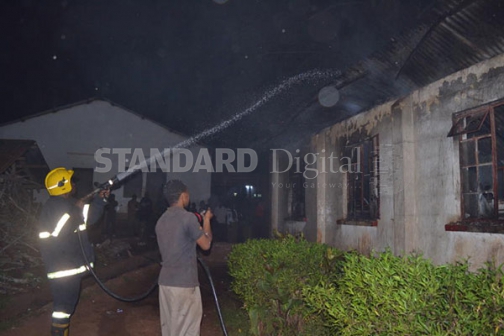×
The Standard e-Paper
Smart Minds Choose Us

NAIROBI: Barely 48 hours after President Uhuru Kenyatta put arsonists on notice, more school fires have been reported, even as a new survey cites indiscipline as the major cause of unrest.
The latest schools to report fire incidents are Kwale Boys High School and Kipchimchim Secondary School in Kericho County. Acting Kericho County Commissioner Jamlek Mbuba said a store at the institution in Ainamoi Constituency was partially destroyed during the Friday night incident.